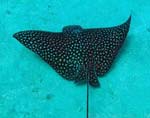


  |
 |
Home About Roatan Know Before You Go Photo Gallery Trip Overview Diving Lodging Dining Contact Us Back to Thunder Reef Home 
|
Know Before You GoMedical Services and Immunizations It is strongly recommended that you familiarize yourself with the CDC's health warnings before traveling to Honduras. You should also discuss appropriate immunizations and vaccinations with your doctor at least 3-months prior to your trip. Medical services are available on Roatan and are well spread throughout the island. Toward the west there is medical staff available at Anthony’s Key Resort. Coxen Hole has the main hospital for the island, and there is also a clinic. Further east are other clinics that are available to help with emergencies. Serious injuries or severe conditions should head to the mainland, as there are no advanced medical care services available. Mosquito-borne illnesses are an ongoing problem in Honduras. All persons traveling in Honduras, even for a brief visit, are at risk of contracting malaria. Take a prophylactic regimen best suited to your health profile. Honduras regularly suffers from outbreaks of dengue fever. Unlike traditional mosquito-borne illnesses, there is no medicinal prophylactic or curative regimen for dengue fever. Travelers should take precautions against being bitten by mosquitoes to reduce the chance of contracting such illnesses, such as avoiding standing water, wearing long sleeves and pants in both day and night, and applying insect repellent regularly. There are two hyberbaric chambers in Roatan. One located at Anthony's Key Resort and the other at Fantasy Island Resort. Two medical doctors and an EMT staff are at the clinic at Anthony's Key. The hours are 8:00am - 5:00pm daily; on call 24 hours/day. A nominal charge of $12/week or $2/day will serve as insurance for treatment in the recompression chamber in the event of decompression sickness. The fee also serves as a donation to the clinic that provides medical services to the local community.
Passports
The Language and Currency
Electricity and Internet Access
Crime
Driving in Roatan
Climate and Water Temperature Click for Roatan, Honduras Forecast Vegetation is kept lush by periodic showers, and the humidity is moderated by the ever-present trade winds. The island is not in the direct path of most hurricanes, as they usually spin north before reaching the Honduran shores. Water temperature varies from 78°F/25°C in winter to 84°F/29°C in summer, and underwater visibility is typically 80 to 100 feet.
What to Bring
Things to do in RoatanRoatan Sport FishingRoatan has a lot to offer to the professional or novice fishing enthusiast. A wide range of businesses offer charter trips, which include knowledgeable local guides, fishing equipment for the local conditions, and well maintained boats with all safety gear. You can choose between light trolling along different reefs and offshore banks on the south side of Roatan or deep sea fishing several miles offshore in the open sea and over sea mounts for marlin and other big game fish. You can find Tuna, Wahoo, Sailfish, Marlins, Tarpon and Bonefish in the shoreline areas.
Dolphin Snorkel Encounter The Dolphin Encounter is a great way for small children and adults who don't have strong swimming skills to experience relating to the dolphins by entering the water waste deep and petting the dolphins. No more than six people at a time and the play session lasts for 30 minutes. Good for children. The Dolphin Dive Encounter consists of a small boat with no more than six divers being taken just five minutes outside the reef. The encounter is 45 minutes long and allows time to observe, photograph and play with the dolphins. Shore snorkeling is available close to the beach on West Bay Beach and Hammond Bay. You can find great reefs where you can go swimming and spend a great time. The Roatan Tropical Butterfly Garden in the West End Village is home to many varieties of tropical butterflies and birds. Hours of Operation are Sunday through Friday, 9 AM - 5 PM, closed Saturday. Admission is $7.00 for adults and $5.00 for children under 10 years. Other activities include horseback riding, zip line canopy tours, and coral reef exploring in a glass-bottomed boat. |
| Thunder Reef Divers * 12104 NE Highway 99 * Vancouver, WA 98686 * 360-573-8507 |